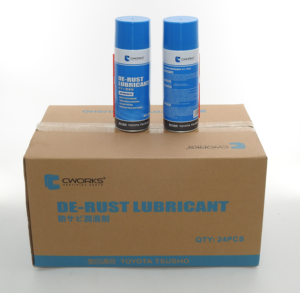Toyota Rust: Understanding the Issue
Toyota Rust is a common concern among owners of Toyota vehicles, particularly in regions with harsh weather conditions and where road salt is frequently used. Rust not only detracts from the aesthetic appeal of a vehicle but can also compromise structural integrity, leading to expensive repairs if left untreated. Understanding the types and signs of Toyota rust, along with prevention and repair strategies, is essential for maintaining the longevity and value of your car.
Types of Toyota Rust
There are primarily three types of rust that can affect your Toyota vehicle:
- Surface Rust: This is the mildest form of rust, typically appearing as small, flaky spots on the paint surface. While it can be unsightly, it's often easy to treat with sanding and repainting.
- Scale Rust: More severe than surface rust, scale rust penetrates deeper into the metal and can lead to pitting. At this stage, repairs require more extensive treatments, including rust removal and metal replacement.
- Pit Rust: This is the most dangerous type of rust, characterized by deep cavities forming in the metal. It can significantly weaken structural components of the vehicle and often requires professional intervention to ensure safety.
Functions and Features of Anti-Rust Treatments for Toyota
To combat the effects of rust on Toyota vehicles, various anti-rust treatments incorporate advanced technology and methodologies. Key features include:
- Protective Coatings: These are applied to the vehicle's undercarriage and vulnerable areas to provide a barrier against moisture and corrosive elements.
- Rust Inhibitors: Products infused with chemicals that disrupt the electrochemical process responsible for oxidization, thus preventing rust formation.
- Regular Maintenance Solutions: Clear guides on frequency and methods for cleaning and treating known rust-prone areas on the vehicle.
- Professional Services: Many auto shops offer specialized rust-proofing services that guarantee long-lasting protection and thorough inspection for existing damage.
How to Prevent and Address Toyota Rust
Preventing rust from developing on your Toyota requires proactive measures and regular maintenance:
- Regular Washing: Frequent washing of the vehicle, especially in winter, helps remove road salts and dirt that contribute to rust formation.
- Applying Wax: A quality wax coat offers a protective layer, shielding the paint and metal beneath from moisture and corrosive agents.
- Inspect Regularly: Conduct regular checks, especially in areas such as wheel wells, undercarriage, and seams. Early detection can help mitigate damage.
- Professional Rustproofing: Consider investing in a professional rustproofing service when you purchase a new or used Toyota to get an initial layer of protection.
In conclusion, understanding the effects of Toyota rust, its types, and the preventive measures available can save vehicle owners time and money, ensuring their cars remain in top condition for years to come. With proactive care and attention, the impact of rust can be effectively minimized, allowing Toyota owners to enjoy their vehicles with peace of mind.




































